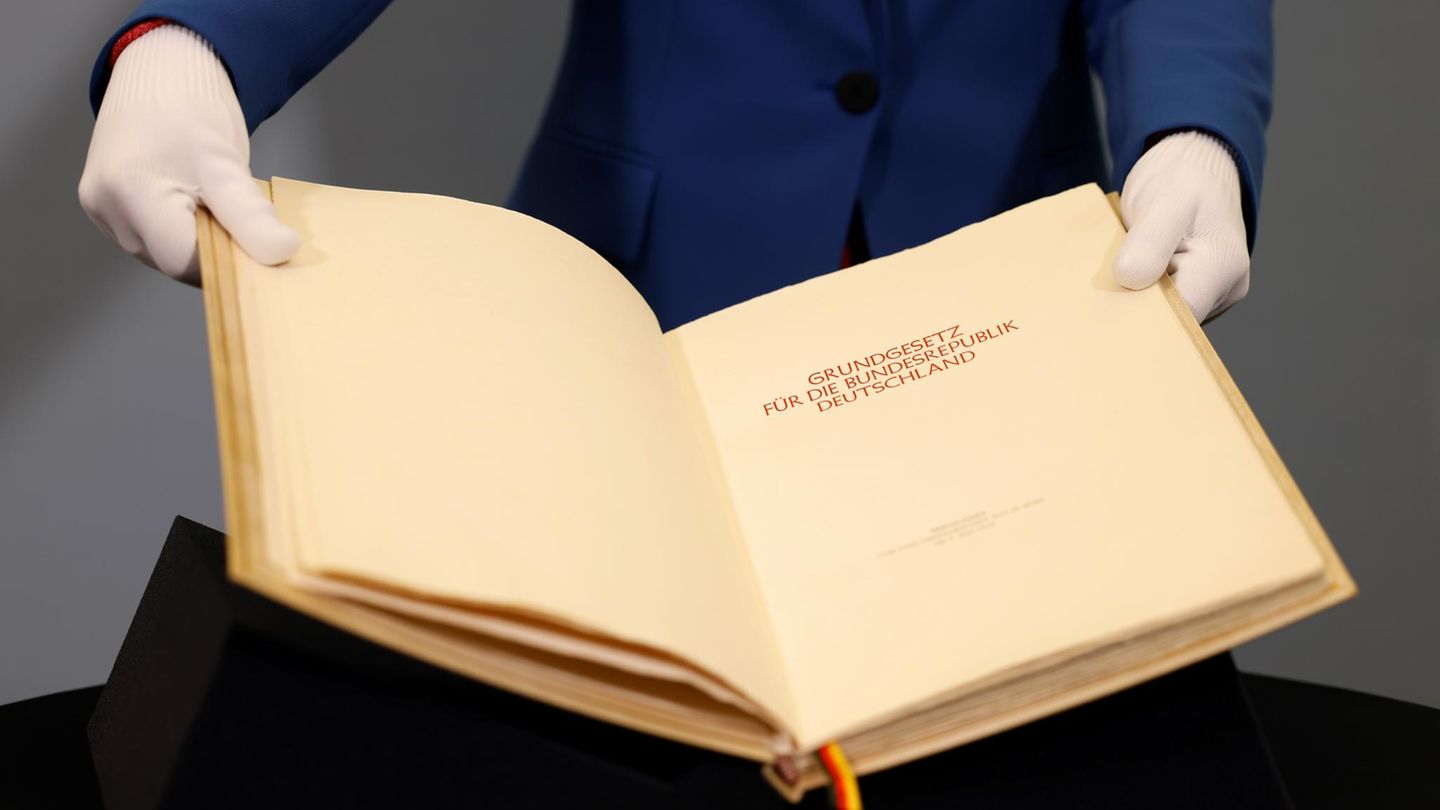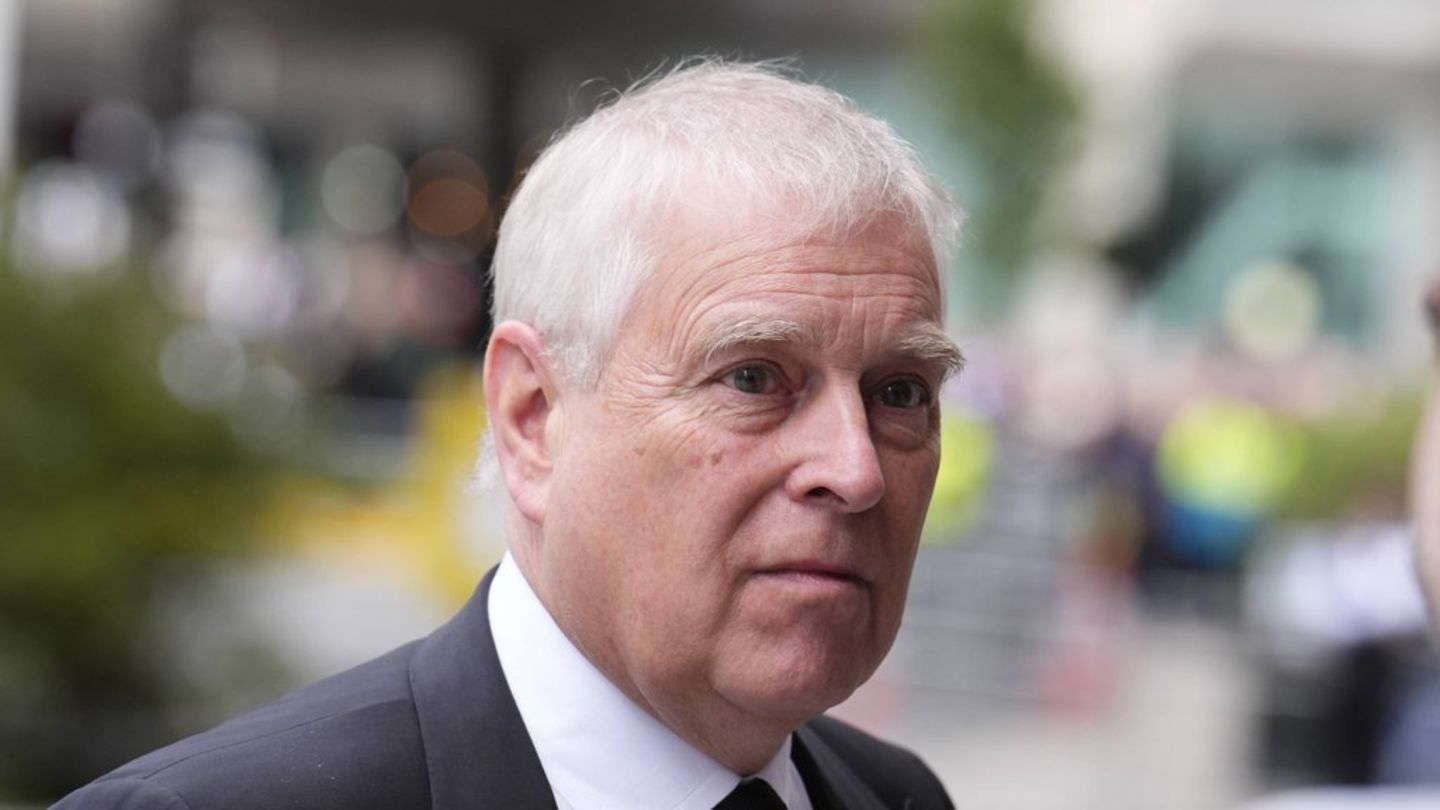Just in time for the constitutional anniversary, Thuringia’s Prime Minister Bodo Ramelow wants a referendum on the Basic Law in order to involve East Germans more. His colleagues don’t think so.
Before the beginning of the celebrations for the anniversary of the Basic Law, Saxony-Anhalt’s Prime Minister Reiner Haseloff rejected calls from his Thuringian counterpart Bodo Ramelow for a referendum on the constitution. “75 years after it was announced, it shouldn’t be about voting on the Basic Law,” said the CDU politician star. Rather, it is about continuing to fill it with life and respecting and preserving it.
The new countries consciously decided to join in 1990, explained Haseloff. The values of the Basic Law such as democracy, human dignity and freedom of expression correspond to what people took to the streets for in 1989.
Ramelow, left-wing Prime Minister in Thuringia, had called for a referendum on a constitution in the “Frankfurter Allgemeine Zeitung” in order to overcome the “emotional alienation” of many East Germans towards the Basic Law. He referred to Article 146, which states: “This Basic Law, which applies to the entire German people after the unity and freedom of Germany has been completed, loses its validity on the day on which a constitution drawn up by the German government comes into force was decided by the people in a free decision.”
Referendum on the Basic Law: Resistance also in Brandenburg
Dietmar Woidke, the head of the Brandenburg SPD government, also contradicted Ramelow. Although there are still injustices between East and West that must finally be eliminated, he told the star“But not a single East German benefits from referendums on Article 146 of the Basic Law.” The Basic Law has been the basis for freedom, prosperity and development for 75 years, he added: “I therefore believe that abolishing Article 146 is the better way.”
The former Thuringian CDU government leader Bernhard Vogel also opposed Ramelow’s proposal. “I do not believe in making the Basic Law a formal constitution by referendum,” he told the starIn 1990, accession under Article 23 was decided “for good reasons”. “The most important reason: nobody knew how long the international framework for reunification would remain favourable.”
Before his term in office in Thuringia, Vogel had ruled as Prime Minister in Rhineland-Palatinate. He admitted that the way the unification was carried out still causes dissatisfaction today. “Of course I see the disadvantage that because of the entry via Article 23, many East Germans have the feeling that they don’t really have a say in the united Germany and that they are, as a result, second class,” he said. But this sentiment will not be eliminated by a symbolic act.
75 years of the Basic Law
Bundeswehr, reunification, asylum law: The most important changes to the Basic Law
Haseloff warns of increased “Eastern mentality”
Regarding the events planned for the anniversary in Berlin and other cities, Haseloff said: “We East Germans do not want to be considered at celebrations and speeches, but rather where decisions are made: for example in management positions in companies, committees and federal authorities.” At this point, greater efforts are needed from all sides: “Otherwise, an Eastern mentality will increasingly emerge again.”
The Prime Minister of Mecklenburg-Western Pomerania Manuela Schwesig (SPD) also commented on this: “In general, I think that the proportion of East Germans in top positions in business, politics and society must continue to increase,” she said star.
Source: Stern
I have been working in the news industry for over 6 years, first as a reporter and now as an editor. I have covered politics extensively, and my work has appeared in major newspapers and online news outlets around the world. In addition to my writing, I also contribute regularly to 24 Hours World.




